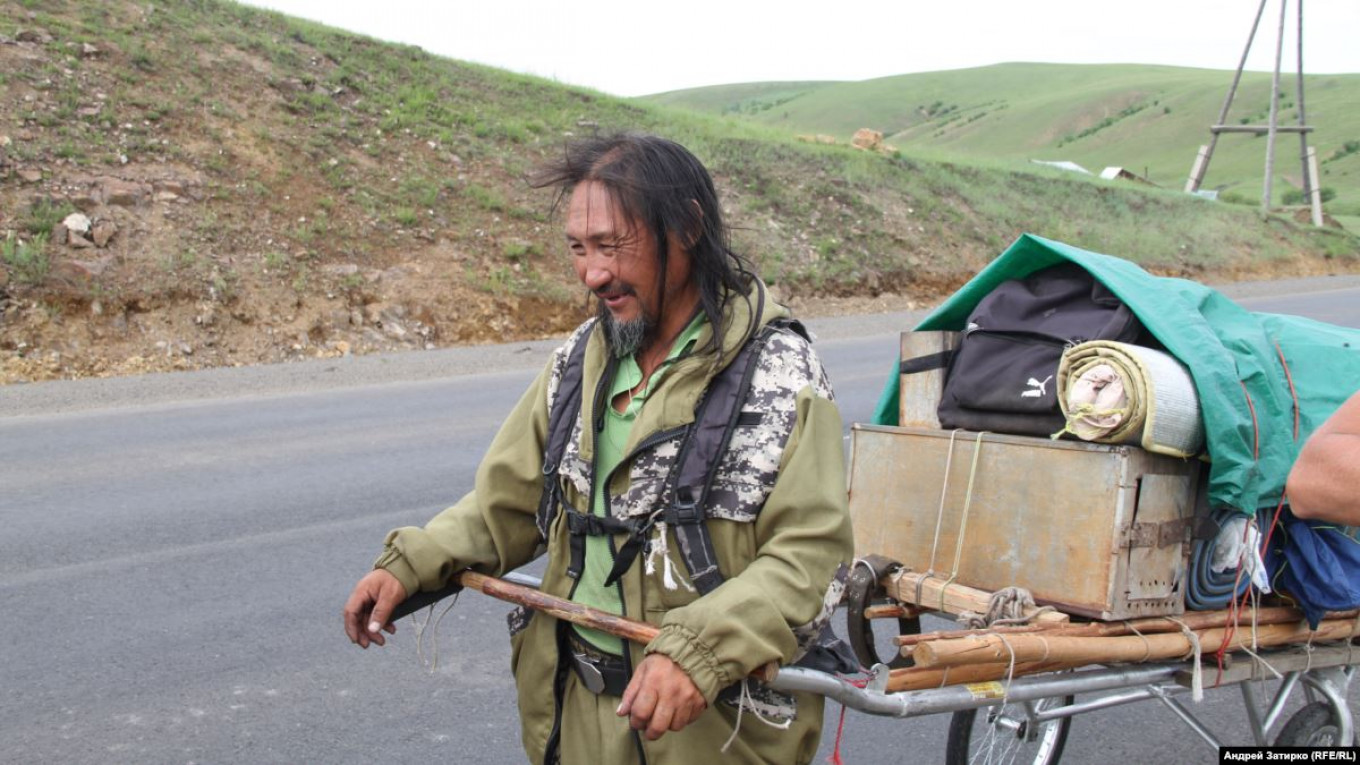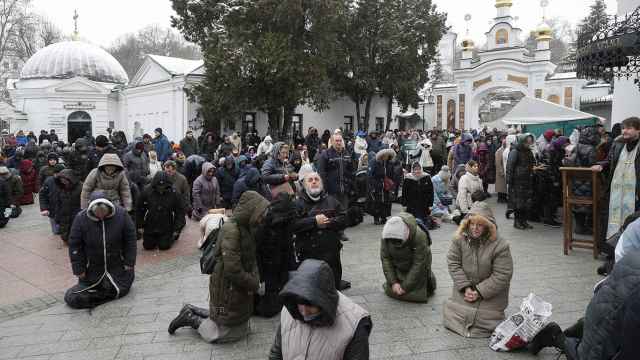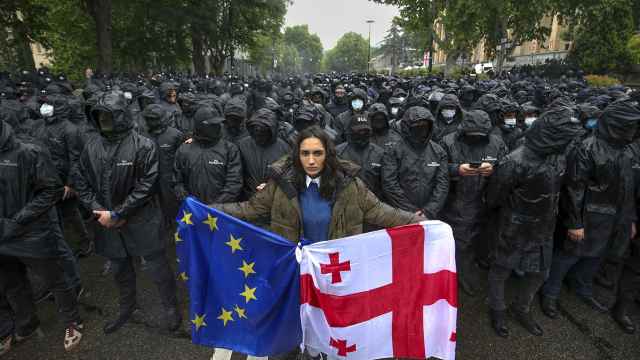Alexander Gabyshev, a self-proclaimed shaman who set off for Moscow to drive out Vladimir Putin, whom he says is a demon, has been arrested and now faces the prospect of a criminal case.
Gabyshev’s detention is the result not only of his participation in acts of protest, but also of the seriousness with which many representatives of the authorities and special services regard superstitions and occult practices.
On Thursday, Sept. 19, Gabyshev's traveling companions reported that security forces armed with automatic rifles and batons had broken into the camp where the shaman was spending the night on the border of the Republic of Buryatia and the Irkutsk Region.
They arrested him and took him away in a police bus in the direction of Ulan-Ude.
Without naming names, the republic’s department of internal affairs reported that Gabyshev had been detained on the orders of an investigator in connection with a crime committed in Yakutia, and that plans are underway to transport him to Yakutsk. The shaman may be charged with extremism.
Gabyshev's trek to Moscow had already led to the arrest of his traveling companions, which was one of the causes of recent civil unrest in Ulan-Ude.
The discontent grew into protests demanding the results of municipal mayoral elections to be reviewed and gave birth to an ad-hoc alliance between local shamanists and communists.
An attempt to drive demons out of the Kremlin in the age of smartphones and supercomputers appears ridiculous, as do the possible charges against Gabyshev of extremism: It thus follows that occult rituals are taken as a genuine threat to the state.
Yet this should come as no surprise. Many Russians have lost confidence in the rational foundations of the world order and the state apparatus, and the lack of scientific explanations is being supplanted by superstitions and conspiracy theories – including live on state television.
But this is just half the trouble: Similar explanations of reality and occultist methods are widespread among the upper ranks of the special services, those close to the country’s leadership.
Back in the 1920s and 1930s, members of the NKVD, KGB’s predecessor, took an active interest in occultism.
In post-Soviet Russia, such practices were promoted by the late General Georgy Rogozin, former deputy head of the presidential security service, who in a 2000 interview with the Komsomolskaya Pravda tabloid once said:
“There are powerful methods, which open up psychotronics. This science controls the brain <...> in order to see the trajectory of a person’s life, their ups and downs, it’s enough to know when they were born.”
Another senior official, Federal Security Service General Boris Ratnikov told Rossiyskaya Gazeta in December 2006 that the special services had tapped into the subconscious of U.S. Secretary of State Madeleine Albright and discovered a “pathological hate of Slavs” and dreams of control over Russia.
Security Council Secretary Nikolai Patrushev in 2015 then reconstituted this as a “statement” by Albright that Siberia and the Far East did not belong to Russia.
One can only guess what threats the current security bodies have been able to scan in the shaman’s subconscious.
A Russian version of this article first appeared in Vedomosti.
A Message from The Moscow Times:
Dear readers,
We are facing unprecedented challenges. Russia's Prosecutor General's Office has designated The Moscow Times as an "undesirable" organization, criminalizing our work and putting our staff at risk of prosecution. This follows our earlier unjust labeling as a "foreign agent."
These actions are direct attempts to silence independent journalism in Russia. The authorities claim our work "discredits the decisions of the Russian leadership." We see things differently: we strive to provide accurate, unbiased reporting on Russia.
We, the journalists of The Moscow Times, refuse to be silenced. But to continue our work, we need your help.
Your support, no matter how small, makes a world of difference. If you can, please support us monthly starting from just $2. It's quick to set up, and every contribution makes a significant impact.
By supporting The Moscow Times, you're defending open, independent journalism in the face of repression. Thank you for standing with us.
Remind me later.







